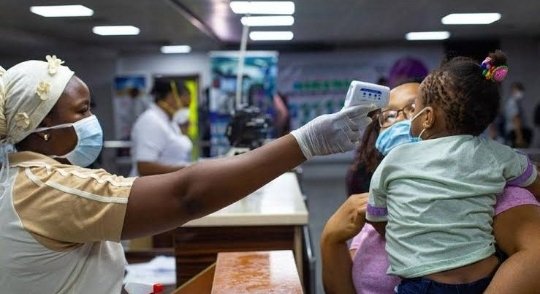Master Of Public Health Jobs and Best Public Health Schools
Making the world a healthier place is a fundamental value shared by all public health organizations and practitioners. If you want to help people who need medical treatment but aren’t a medical practitioner, a career in public health might be for you. Pursuing a degree in public health will result in a question like this, what are some of the master of public health jobs?
Read Also: How to Become a Neurosurgeon in Nigeria: Step By Step Guide
There are many options for a successful career in public health, but it should be noted that you more than likely need a degree and that salaries vary by geographic location, cost of living, the company and job roles or functions. If you are looking for a job in public health, read our guide to learn about Master Of Public Health Jobs and Best Public Health Schools
Master Of Public Health Jobs and Best Public Health Schools
Masters In Public Health
To begin a successful career in public health, one must first learn the fundamentals. Therefore let’s go through the top public health degrees and why they are significant.
1. Bachelor of Public Health (BPH)
For college students, the BPH degree is the undergraduate option. It is not necessary to pursue a specialized BS in public health program since many students get an undergraduate degree in health administration, nursing, informatics, or another healthcare field. Most public health professionals hold an MPH, and most MPH programs require a bachelor’s degree in a health-related discipline. If you know you want to work in public health, you may pursue a BPH degree and build on your undergraduate education.
2. Master of Public Health (MPH)
Although an MPH is not necessary to work in public health, most public health experts suggest it for positions in both the commercial and public sectors. If you desire a specific MPH degree, you may choose from a variety of concentrations, including epidemiology, global health, community health, and environmental health.
3. Doctor of Public Health (DPH)
The DPH degree is the highest level of education in the area of public health. If you intend to become a public health professor in a college environment or work in research, you might consider pursuing a DPH or DrPH (or Ph.D. in Public Health) after completing your master’s degree.
Master Of Public Health Jobs Salary
1. Health Informatics Specialist – Average Salary:62,600 USD
As a health informatics specialist, your responsibility includes analyzing numerous forms of healthcare data and applying statistical principles to public health and medical research.
You will be involved in clinical trials, genomic studies, and the identification of population health trends. A biostatistician’s job may also entail developing experimental cures for illnesses or determining links between lifestyle choices and public health concerns.
A health informatics specialist’s primary responsibilities include the following:
- Creating effective statistical protocols.
- Analyzing and monitoring databases and data analysis software
- Collecting data reports using statistics, maths, and computer science abilities
2. Healthcare Administrator – Average Salary: 65,500 USD
Where will a healthcare administrator work? Some of the popular employers of this career include hospitals, clinics, healthcare institutions, and wellness centers.
A healthcare administrator is in charge of overseeing all aspects of running a healthcare facility. Your primary focus will be on organizing your team, delegating responsibilities, and ensuring that the institution has all of the essential resources and inventories. You will do the following as a healthcare administrator:
- Coordination and management of health services supplied to customers, as well as health programs, staff, and budgets
- Maintain touch with diverse organizations, such as medical equipment vendors.
- Participate in public healthcare initiatives aimed at improving or resolving specific difficulties in the healthcare system.
3. Epidemiologist – Average Salary -62,900 USD
Epidemiologists assess and monitor the transmission of illnesses, investigate their causes, and offer answers and potential cures. The job of epidemiology is comparable to that of a scientist in that it incorporates information from Biology, Statistics, and Math while also taking into account numerous socioeconomic issues. Some of your duties will include:
- Educating and training policymakers on illnesses and infections.
- Monitoring epidemics and offering detailed reports based on the data collected.
- Examining local and state healthcare agencies.
4. Public Health Project Manager – Average Salary: 75,400 USD
The primary purpose of public health managers is to plan and oversee the execution of public health programs that increase community well-being. Some of the significant problems are financial management, overcoming unanticipated issues, and meeting the project’s basic objectives without severe delays. A public health project manager’s primary tasks include:
- Managing employees and delegating duties
- Examine how projects are progressing and look for methods to increase overall efficiency.
- Providing personnel with regular updates, documenting project actions, and creating reports.
5. Health and Safety Engineer – Average Salary: 76,000 USD
Health and Safety Engineer creates machinery, equipment, and other systems that promote human health or prevent sickness. A health engineer’s key responsibilities include ensuring that various items (equipment and machinery used in factories, buildings, etc.) are safe to use, identifying possible dangers, evaluating health and safety legislation and programs, and investigating incidents. Common responsibilities of health and safety engineers include:
- Checking plans for new machinery and equipment to ensure they fulfill safety standards.
- Determining possible risks in buildings, machines, and safety equipment.
- Installing safety equipment on machines.
- Verifying staff safety programs and providing suggestions for improvements.
6. Registered Nurses – Average Annual Salary: $71,730
Registered nurses (RNs) evaluate people’s health, offer patient care, record symptoms, interpret test findings, and provide medications and treatments. They also provide emotional support to patients and their loved ones, consult with physicians, and prepare patients to live at home once their treatment is completed.
7. Social and Community Service Managers – Average Annual Salary: $65,320
These managers are in charge of social assistance programs and community outreach groups, including substance misuse clinics, homeless shelters, and mental health centers. Budgets are often overseen, grant and funding submissions are written, volunteers are recruited and trained, and measures to enhance awareness and support for their activities are planned.
8. Dieticians and Nutritionists – Average Annual Salary: $60,370 per year
Dieticians examine patients’ nutritional needs and advise clients on appropriate eating habits. They provide tailored meal plans for patients and work with other healthcare providers to coordinate and optimize patient care. They may also provide instructional workshops or oversee food programs in hospitals, schools, and long-term care homes.
How Many Jobs Are Available In Health Care?
Jobs in health care are in great demand all over. To begin a prosperous and enjoyable profession in the healthcare sector, all you need is a solid education and a desire to assist people. The top healthcare jobs are outlined below with their corresponding wages:
- Athletic trainer – $50,000
- Audiologist – $81,000
- Cardiac sonographer – $75,000
- Cardiovascular invasive specialist – $59,000
- Cardiovascular perfusionist – $124,000
- Central service technician – $37,000
- Child life specialist – $60,000
- Cytogenetic technologist – $67,000
- Cytotechnologist – $74,000
- Diagnostic medical sonographer – $76,000
- Dietitian – $63,000
- Emergency medicine paramedic – $37,000
- Genetic counselor – $86,000
- Health information manager – $44,000
- Hemodialysis technician – $41,000
- Histology technician – $54,000
- Hospital chaplain – $49,000
- Medical laboratory scientist – $54,000
- Medical massage therapist – $44,000
- Medical physicist – $129,000
- Medical social worker – $58,000
- Medical speech-language pathologist – $80,000
- Molecular genetics technologist – $54,000
- Neurodiagnostic technologist – $59,000
- Nuclear medicine technologist – $79,000
- Nurse – $75,000
- Nurse anesthetist – $183,000
- Nurse midwife – $112,000
- Nurse practitioner – $112,000
- Pharmacist – $129,000
- Phlebotomy technician – $36,000
- Positron emission tomography technologist – $79,000

Best Public Health Salary
Does public health make good money? Is it profitable to work in public health? If you’re wondering if a career in public health is a suitable fit for you, look no further.
Public health jobs are numerous, and many people who work in the sector say they like their jobs. People who work in public health have the opportunity to have a positive influence on people’s lives every day.
Below are some estimates of public health job salaries:
- Biostatistician – $92,270
- Computer and Information System Managers In Healthcare – $151,150
- Doctorate Degree Holders – $80,560
- Emergency Management Director – $76,250
- Environmental Scientists – $73,230
- Public Health Attorney – $126,930
- Social and Community Service Manager – $69,600
Best Public Health Schools
The discipline of public health is the study of what promotes and protects the health and well-being of communities. While physicians treat illnesses and injuries, public health specialists guarantee that similar health problems do not occur in the general public.
Public health experts play an important role in society. The work of these health and safety specialists has made our contemporary way of life possible. Various colleges have excelled in producing better health professionals and doing more research into the public health discipline in order to continue their efforts to make the world a better place. In this section, we will look at some of the greatest public health schools in the globe.
1. Harvard University – Degrees Available: Undergraduate, Master’s, and Ph.D.
Harvard University was founded in 1636. Years later, in 1650, Harvard got its legal charter. The Harvard T.H. Chan School of Public Health is regarded as one of the greatest public health schools in the world. The Harvard-MIT School of Health Officers was founded in 1913. The school was America’s first professional public health training program. Until 1922, it was a collaboration with MIT’s allied public health courses.
2. University of Johns Hopkins – Degrees Available: Undergraduate, Master’s, and Ph.D.
The Johns Hopkins Bloomberg Institution of Public Health opened its doors in 1916 as the world’s first independent degree-granting public health school. Its history demonstrates several contributions to the advancement of public health as an area of study.
The Johns Hopkins Bloomberg School of Public Health has repeatedly delivered population-level solutions to pressing global public health issues. Johns Hopkins has many divisions to address every facet of international public health. The degree of quality demonstrated by its alumni and researchers guaranteed that the institution stayed in the top tiers of worldwide university rankings.
3. London School of Hygiene & Tropical Medicine – Degrees Available: Master’s and PhD
In 1899, the London School of Hygiene and Tropical Medicine was founded. It is an exceptional public health institution with two campuses in Bloomsbury, UK, as well as two other locations in Gambia and Uganda. LSHTM is well renowned for its proficiency in global public health research and post-graduate courses.
LSHTM focuses on research-led education to prepare future public health professionals and health-centered policymakers. Despite the lack of an undergraduate program in public health, the institution managed to rise above the competition.
4. University of Washington – Degrees Available: Undergraduate, Master’s, and PhD
The University of Washington was founded in 1861 and is now the West Coast’s oldest public university. The university focuses on overcoming obstacles in the quest for global advancement and societal improvement.
The School of Public Health was formally founded in 1970, years after its first departments and components were created during World War II. These departments helped elevate the overall School of Public Health to the status of outstanding learning and research institution that it is today.
The efforts of its alumni and researchers contributed significantly, putting the institution on the receiving end of honors and at the top of worldwide public health university rankings.
5. University College London – Degrees Available: Undergraduate, Master’s, and PhD
The University College London was founded in London in 1826. UCL is one of the country’s leading interdisciplinary universities. The institution takes pride in its innovative approach to encouraging its students to strive for greatness.
UCL Institute of Epidemiology and Health Care, one of the greatest public health schools in the world, focuses on tackling health concerns in the twenty-first century. Using a variety of disciplines, the institution seeks to comprehend all potential health challenges while investigating potential remedies.
6. Imperial College London – Degrees Available: Undergraduate, Master’s, and PhD
The Imperial College London was founded in 1845 by English Prince Albert as The Royal College of Science. The ICL School of Public Health’s mission is to develop the public health sector while positively influencing global policy. To that end, this prestigious public health institution has continuously expected excellence from its alumni and researchers while offering full training assistance.
The quality of the school’s research has affected worldwide public health policy. The number of prizes and distinctions bestowed to the university demonstrates the effectiveness of such measures. Imperial College London is still regarded as one of the greatest public health colleges in the world.
7. Karolinska Institutet (Karolinska Institute) – Degrees Available: Undergraduate, Master’s, and PhD
Karolinska Institutet, sometimes known as Karolinska Institute, is one of the world’s finest medical universities. Karl XIII of Sweden founded the KI in 1810 as the first Swedish medical school, and it is still the only strictly medical training institution in Sweden today.
The Karolinska Institutet Department of Global Public Health is ranked among the top public health schools because it focuses on solving public health problems at the local, national, and worldwide levels.
Because of its singular concentration on the topic, the Department of Global Public Health has made significant contributions to public health science. The study findings are translated into real-world policy recommendations for international leaders. Karolinska Institutet is rightfully regarded as one of the finest public health universities in the world.
Master Of Public Health Jobs and Best Public Health Schools
Conclusion: What Can an Individual Do To Further Public Health
We are gradually coming to the end of this post on masters of public health. An important question, however, is, what can an individual do to further public health? Below are a few suggestions to get you started on making your neighborhood a better place to live!
1. Begin Being Healthier at Work
Speak with your Human Resources Department to see if they would be interested in launching an employee wellness program or in taking minor actions such as switching to healthier snacks in the break room vending machines. If an employee wellness program already exists, you may be able to assist in its promotion. Encourage individuals to take care of their health by participating in a morning or lunchtime workout or walking group with you. You might be amazed at how many people when given the correct incentive, would adopt better behaviors.
2. Participate in a Local Social Services Organization’s Volunteer Program.
Discover which non-profit organizations provide social services that benefit the health of your neighborhood. Discover what they do and how they work. Many of these groups are likely to rely on volunteers, and you may have a talent that may assist their mission. By donating your time to one of these organizations, you can help them reach out to more people. A simple contribution from you can make a significant influence on the lives of people in need!
3. Encourage the use of carpooling and public transportation.
People who live, work, or go to school near a major road tend to be at an elevated risk and severity of health issues caused by air pollution, according to the Environmental Protection Agency. Surprisingly, the Agency believes that more than 45 million people live within 300 feet of a roadway with four or more lanes or an airport as of 2009. Encourage those you know to carpool and take public transit to help improve outdoor air quality. Set a good example by taking the bus to work or organizing a carpool with coworkers who live nearby.
4. Pursue a Career in Public Health
Do you want to make the world a better place to live? If you have a strong interest in public health, you should consider pursuing a career in it. In this post, we have outlined some top universities you can pursue a degree in public health.




















